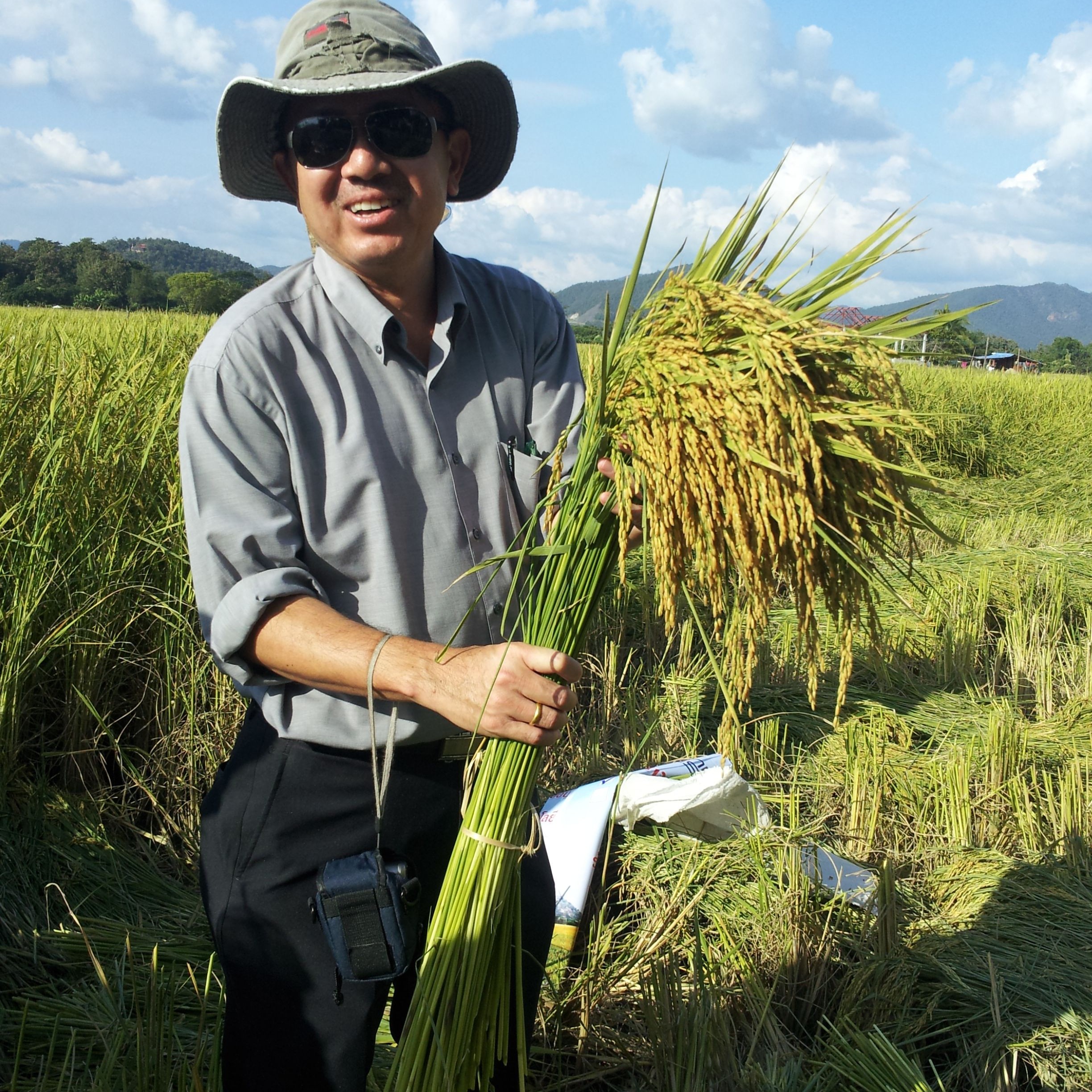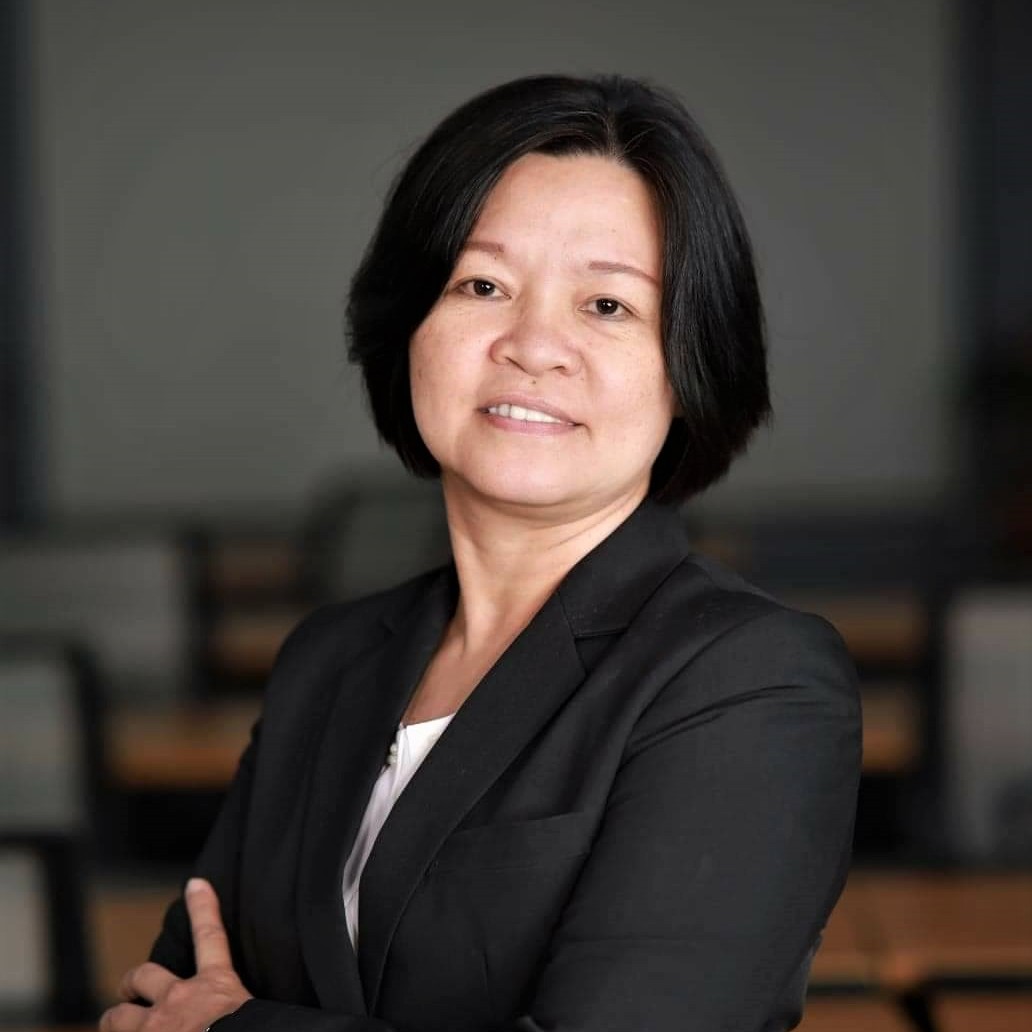About This Project
Thailand's economy and labor force are highly dependent on rice cultivation. Agriculture contributed 14.72% of Thailand’s GHG emissions, and rice cultivation contributed 26,639.52 GgCO2eq (51.07%). How can CO2 emissions be limited and used in rice production? It is necessary to identify rice traits that increase yield at elevated CO2 concentrations without compromising grain quality. Rice that adapts to high CO2 levels can be used as a donor for improving high-quality rice in Thailand.
Ask the Scientists
Join The DiscussionWhat is the context of this research?
Photosynthesis and the greenhouse effect are influenced by carbon dioxide (CO2). Increase in atmospheric CO2 results from human activities, including rice cultivation. Rice, which is life and culture in Thailand, is the main agricultural product contributing to GHG emissions. Studies reveal that elevated CO2 levels increase rice yield but also affect grain quality. Our team is keen to investigate specific traits for efficient utilization of CO2 in Thai rice varieties without affecting the grain quality. In this manner, CO2 will be utilized, thereby mitigating the effects of global warming. A rice variety with efficient CO2 uptake that can maintain good grain quality under elevated CO2 can be used as a donor in rice breeding programs.
What is the significance of this project?
The continuous increase of CO2 in the atmosphere is posing a threat to increasing global warmingand the subsequent effects of climate change on rice production. The effects of climate change in Thailand, which is one of the top rice producers in the world, will affect people's livelihoods and food security. The contribution of CO2 to climate change can be lessened by the utilization of the gas in rice production. Moreover, increased CO2 utilization leads to higher yields and, therefore, will give higher income for Thai rice farmers. The identification of a specific trait in rice responding to CO2 uptake and utilization is useful information in the genetic study of the trait and in identifying a rice variety to be a donor to improve other varieties of economic value in the future.
What are the goals of the project?
Our goal is to identify the traits responsive to elevated CO2. We need initial funding to obtain preliminary results. Ambient and elevated CO2 (800ppm) in a closed greenhouse system will be imposed. Leaf, stem and root anatomy from both teatments will be investigated at maximum tillering and flowering stages. Cross sections will be observed under microscope and the leaf mesophyll and the number of vascular bundles in stems and roots will be counted. The difference in the features of traits at ambient and elevated CO2 will reflect the response to CO2. Correlation of traits with yield and CO2 uptake will determine the relationship of the specific traits to improved yield under elevated CO2. The Information can used in studying the genetic control of traits responsive to elevated CO2.
Budget
The project has a collaborator from the university who will work on rice physiology and also has research assistants who will work on rice trait morphology and anatomy. Materials and supplies include CO2 tanks to create elevated CO2 concentrations, glassware, pots, soil, nutrient solutions, and other items that will be used for the measurement and collection of data and samples related to traits enhancing yield at elevated CO2. Miscellaneous expenditures include sample analysis of plant nitrogen content and determination of grain quality traits in rice exposed to elevated CO2. Overhead will be used as compensation for the solar plant factory greenhouse that will be used in elevated CO2 experiments.
Endorsed by
 Project Timeline
Project Timeline
The project includes 1) experiments on elevated CO2 2) identify plastic response of leaves, stems, and roots; and 3) determine grain quality. In Activity 1, an experiment will be set up (ambient and elevated CO2), and at maximum tillering and at flowering stages, photosynthesis and other related traits will be determined. In activity 2, leaf, stem, and root morphology and anatomy will be analyzed. While grain physical properties and chalkiness are included in activity 3.
Mar 09, 2023
Project Launched
Jul 31, 2023
Data on photosynthesis, physiological, agronomic, yield and yield components
Sep 30, 2023
Data on leaf morphology and anatomy
Oct 31, 2023
Data on root morphology and anatomy
Nov 30, 2023
Data on stem morphology and anatomy
Meet the Team
Team Bio
Dr. Cattleya Chutteang works at Kasetsart University (KU) on crop physiology. She earned her Ph.D. from Tokyo University of Agriculture and Technology. Dr. Meechai Siangliw, Ph.D. in Genetic Engineering from KU, Thailand, works on abiotic stress in rice. Ms. Mathurada Ruangsiri, MS degree from KU, Thailand has good background in root physiology and statistics. Ms. Pimpa Raksatikan, BS degree from Rajabhat University, Thailand has experience in rice cultivation and data collection. Link to CV.
Jonaliza Siangliw
I earned my Ph. D. in Tropical Agriculture from Kasetsart University in Thailand. After my Ph.D. I joined the National Center for Genetic Engineering and Biotechnology as a researcher. I have been a principal investigator of several projects funded by NSTDA and also projects like Newton Fund of the UK research and innovation funds and the Southeast Asian-Europe joint funding scheme for research and innovation. I've worked on abiotic stress in rice, specifically water deficit and rice breeding in the Mekong Region. I had the opportunity to participate in the study of rice photosynthetic and physiological responses to drought and salinity stress. One of the aims of our rice breeding program is to enhance the yield of our rice varieties and maintain the grain quality of rice similar to the famous Thai jasmine rice. Moreover, we have bred eco-friendly rice by incorporating resistance to pests and diseases. We have released several varieties to farmers and also trained the farmers to have sustainable seed sources as one way to lessen the cost of production and maintain the purity of the rice variety. Many of our articles have been published in international journals, which can be seen at the link.
Lab Notes
Nothing posted yet.
Additional Information
Once we identify the traits specifically responding to CO2 uptake and utilization and the rice variety possessing those traits, the information will be useful in breeding rice with efficient CO2 uptake and utilization and combining it with the grain quality traits that are specifically important for rice marketability.
Project Backers
- 2Backers
- 1%Funded
- $25Total Donations
- $12.50Average Donation


